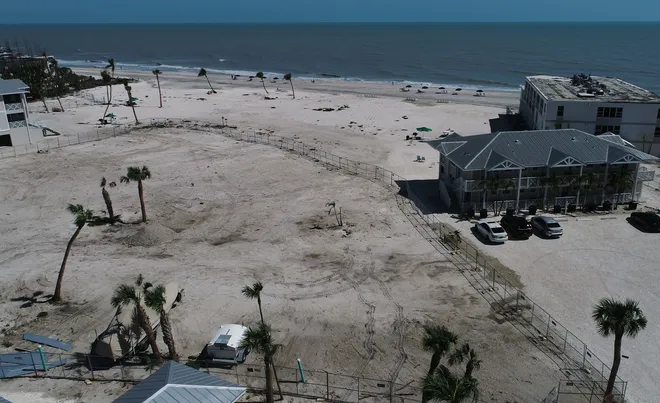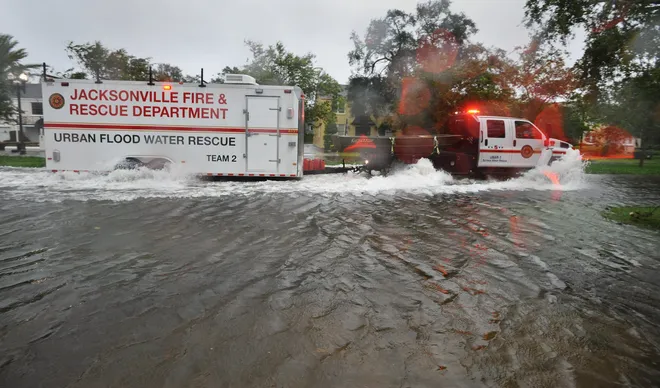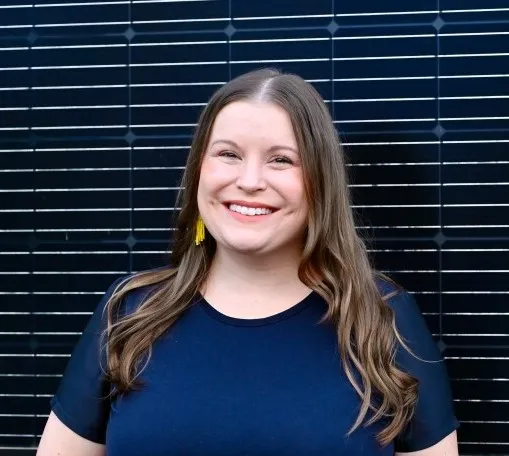Renewable energy advocate: Solar the 'secret' source of backup power for hurricane season
Renewable energy advocate: Solar the 'secret' source of backup power for hurricane season
Renewable energy advocate: Solar the 'secret' source of backup power for hurricane season
Heaven Campbell Guest columnist
Hurricane Ian was a bad one. If you didn’t quite realize it, just ask the residents of Sanibel Island. The power was out for weeks, both major grocery stores were decimated and hundreds of homes were flattened.
And yet, Ian was not as bad as some others; winds “only” reached 150 miles per hour. Hurricane David reached 175 mph and Hurricane Michael was more deadly. Hurricane Irma was more expensive and knocked out the power for more people.
Hurricanes that pack Ian’s punch, or worse, are becoming more common. As we stare down the barrel at another hurricane season, it’s time we really prepare. I know, every year we say we have to be better prepared for hurricanes in Florida. Yet every year, we fail to make the changes truly necessary to keep the lights on. Let’s not let another hurricane season go by knowing the solutions already exist and are attainable.
That the power goes out for extended periods in Florida after hurricanes is not news. Numerous types of distributed energy, such as consumer solar and batteries, have proved their worth in times of natural disasters. From holding strong after Hurricane Ian descended on Florida to keeping power on in Puerto Rico after Hurricane Fiona, solar plus battery storage has helped individuals and communities maintain some sense of normalcy during extreme weather events. Community resilience increases with the utilization of these resources.
In 2022 alone, more than 141 million people in America experienced the consequences of extended power outages. It’s not just an economic toll these communities absorb. Oftentimes, many of the deaths from a hurricane occur in the immediate aftermath, as the medically vulnerable rely on stable electricity to power medical devices or provide air conditioning to stave off heat illness. Empowering communities to utilize distributed energy resources can provide a lifeline when the power goes down.
Distributed energy resources are also essential to hurricane response and recovery. They ensure services including fire stations or city traffic controls have stable energy.

Further, the current grid is far too dependent on single chokepoints. While utilities and state officials often tout extra manpower deployed during or immediately after a hurricane, a single wire going down can still leave an entire community in the dark. Distributed energy resources, by contrast, ensure that at least some community members have power to provide essential services. For example, homeowner Frank Hardy in Fort Myers used his distributed energy system to keep neighbors’ insulin from spoiling.
In addition, we need to ensure that newly created distributed energy resource programs are financially beneficial to participating customers, so consumers are not dissuaded from making the switch due to minimum usage fees and other arbitrary barriers. With hurricanes not going away anytime soon, it’s increasingly crucial that these programs are implemented as soon as possible.
Rain or shine, our regulators and elected officials need to take the threat to our grid more seriously and prepare for the year ahead. Storms will only get worse. Distributed energy resources offer an opportunity to leverage clean local electricity in a way that is affordable and increases resilience for millions of families and businesses in our state.

Heaven Campbell is the Florida program director for Solar United Neighbors. She lives in Jacksonville.
This guest column is the opinion of the author and does not necessarily represent the views of the Times-Union. We welcome a diversity of opinions.
Additional Info
Source : https://www.jacksonville.com/story/opinion/columns/guest/2023/06/04/distributed-energy-resources-can-help-preserve-power-during-hurricanes/70268690007
